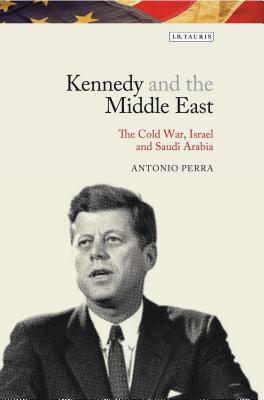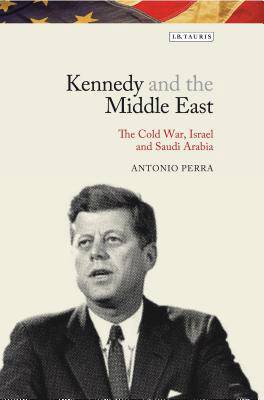
- Afhalen na 1 uur in een winkel met voorraad
- Gratis thuislevering in België vanaf € 30
- Ruim aanbod met 7 miljoen producten
- Afhalen na 1 uur in een winkel met voorraad
- Gratis thuislevering in België vanaf € 30
- Ruim aanbod met 7 miljoen producten
Zoeken
€ 79,95
+ 159 punten
Uitvoering
Omschrijving
At the height of the Cold War, the John F. Kennedy administration designed an ambitious plan for the Middle East-its aim was to seek rapprochement with Nasser's Egypt in order to keep the Arab world neutral and contain the perceived communist threat. In order to offset this approach, Kennedy sought to grow relations with the Kingdom of Saudi Arabia and embrace Israel's defense priorities-a decision which would begin the US-Israeli 'special relationship'. Here, Antonio Perra shows for the first time how new relations with Saudi Arabia and Israel which would come to shape the Middle East for decades were in fact a by-product of Kennedy's efforts at Soviet containment. The Saudi's in particular were increasingly viewed as 'an atavistic regime who would soon disappear' but Kennedy's support for them-which hardened during the Yemen Crisis even as he sought to placate Nasser-had the unintended effect of making them, as today, the US' great pillar of support in the Middle East.
Specificaties
Betrokkenen
- Auteur(s):
- Uitgeverij:
Inhoud
- Aantal bladzijden:
- 256
- Taal:
- Engels
- Reeks:
Eigenschappen
- Productcode (EAN):
- 9780755601042
- Verschijningsdatum:
- 26/12/2019
- Uitvoering:
- Paperback
- Formaat:
- Trade paperback (VS)
- Afmetingen:
- 140 mm x 216 mm
- Gewicht:
- 294 g

Alleen bij Standaard Boekhandel
+ 159 punten op je klantenkaart van Standaard Boekhandel
Beoordelingen
We publiceren alleen reviews die voldoen aan de voorwaarden voor reviews. Bekijk onze voorwaarden voor reviews.











